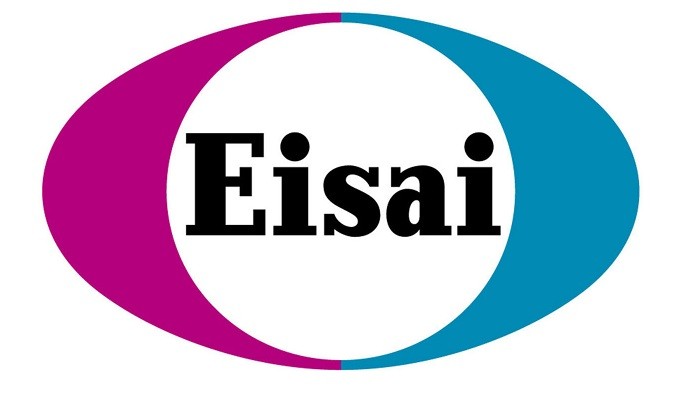Gilead Sciences, Inc. and Eisai Co., Ltd. (Tokyo, Japan) announced that the Japanese Ministry of Health, Labour and Welfare (MHLW) has granted Gilead K.K. (Tokyo, Japan) regulatory approval of Jyseleca (filgotinib 200 mg and 100 mg tablets), a once-daily, oral, JAK1 preferential inhibitor for the treatment of rheumatoid arthritis (RA) in patients who have had an inadequate response to conventional therapies, including the prevention of structural joint damage.
Gilead Japan will hold the marketing authorization of Jyseleca in Japan and will be responsible for the product supply of Jyseleca in Japan, while Eisai will be responsible for product distribution of Jyseleca in Japan in RA. The companies will jointly commercialize the medicine to make it available to physicians and patients across Japan.
“Despite progress in the treatment of RA, existing therapies have not enabled many patients to reach the treatment goals recommended in clinical guidelines. There continues to be a need for effective and well-tolerated new treatment options,” said Tsutomu Takeuchi, MD, Professor of Internal Medicine and Chief of Rheumatology at the School of Medicine, Keio University. “Jyseleca is a new JAK inhibitor that, in clinical trials, has demonstrated clinical improvement, low disease activity and clinical remission in a broad patient population, including patients with inadequate response to biologics.”
“RA causes many patients debilitating fatigue and pain that can significantly interfere with their daily lives,” said Yoshiya Tanaka, MD, Professor at First Department of Internal Medicine, University of Occupational and Environmental Health. “It is important to have new treatment options that can offer patients effective symptom control and bring them new hope.”
The approval in Japan is based on robust clinical trial results from the global FINCH Phase 3 and DARWIN Phase 2 programs. The FINCH and DARWIN programs evaluated Jyseleca in more than 3,500 patients across a range of RA patient populations, including patients new to treatment and those who have demonstrated inadequate response to treatment with standard of care including biologic DMARDs. Patients receiving Jyseleca once daily showed improvements in clinical signs and symptoms, decreases in disease activity, and less progression of structural damage in their joints. Across the FINCH trials, Jyseleca demonstrated a consistent safety profile, and the frequency of adverse events of interest (including serious infections, herpes zoster, venous thromboembolism, and major cardiovascular events) was comparable to control groups.
Across the FINCH and DARWIN trials, the most common adverse reactions were nausea, upper respiratory tract infection, urinary tract infection and dizziness. Rates of herpes zoster and pneumonia were 0.2 percent and 0.3 percent, respectively. The exposure adjusted incidence rate of serious infections per 100 persons per year (95 percent CI) was 1.7 percent (1.3, 2.1) in the Jyseleca 200 mg group and 2.5 percent (1.9, 3.3) in the Jyseleca 100 mg group, respectively. When prescribing Jyseleca, physicians are advised to monitor patients for the development of new, or exacerbation of existing, serious infections including pneumonia, tuberculosis, sepsis, and other viral infections.
“This regulatory approval recognizes the benefit that Jyseleca may be able to provide people living with RA who have not been successfully treated with prior therapies and represents an important advance in the treatment of this challenging disease,” said Luc Hermans, MD, President and Representative Director, Gilead Sciences, K.K.
“Now that Jyseleca has received approval in Japan, we look forward to leveraging our extensive experience in clinical development and commercialization in the RA area in Japan to bring this new treatment option to patients across Japan as soon as possible, and contribute to the improvement of patients’ quality of life,” said Hidenori Yabune, President of Eisai Japan, Senior Vice President, Eisai.
Gilead is developing Jyseleca in collaboration with Galapagos NV (Mechelen, Belgium (Nasdaq and EuroNext: GLPG)). The two companies are conducting global studies investigating the potential role of Jyseleca in a variety of diseases, including the previously reported Phase 3 SELECTION trial in ulcerative colitis.
About the FINCH Program
The FINCH Phase 3 program investigated the efficacy and safety of filgotinib 100 mg and 200 mg once-daily, in RA patient populations ranging from early-stage to biologic-experienced patients. FINCH 1 was a 52-week, randomized, placebo- and adalimumab-controlled trial in combination with MTX, enrolling 1,759 adult patients with moderately to severely active RA who had an inadequate response to MTX. The primary endpoint in FINCH 1 was ACR20 at Week 12. The trial included radiographic assessment at Weeks 24 and 52. FINCH 2 was a global, 24-week randomized, double-blind, placebo-controlled, Phase 3 study evaluating filgotinib on a background of the conventional synthetic disease-modifying anti-rheumatic drug(s) (csDMARDs) among 449 adult patients with moderately to severely active RA who had not adequately responded to biologic DMARDs (bDMARDs). The primary endpoint in FINCH 2 was ACR20 at Week 12. FINCH 3 was a 52-week, randomized trial in 1,252 MTX-naive patients to evaluate filgotinib 200 mg alone and filgotinib 100 mg or 200 mg combined with MTX versus MTX alone. The primary endpoint in FINCH 3 was ACR20 at Week 24. The trial included radiographic assessment at Weeks 24 and 52.


















